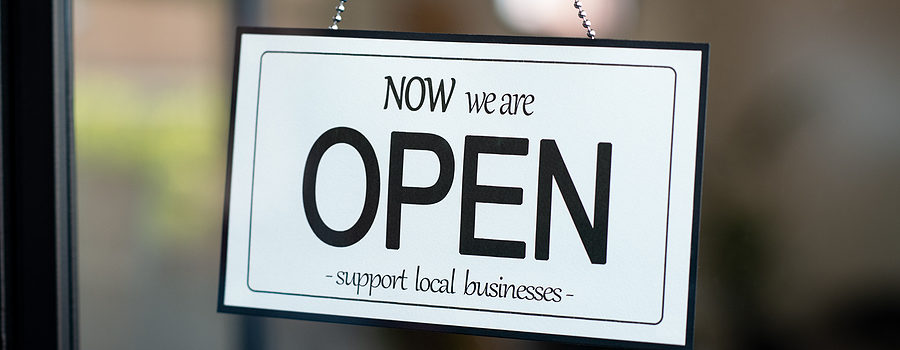5 Things You Need When Starting a New Business
The COVID-19 outbreak has been a plague on small businesses. But as much of a contradiction as it might seem, it also has many Americans thinking about starting a new business.
Consider this: Yelp’s latest Economic Average report showed that 132,580 business were listed as closed, and 55% of those were considered permanent. Says the report: “Overall, permanent closures have steadily increased since the peak of the pandemic with minor spikes in March, followed by May and June.”
And according to the latest MetLife & U.S. Chamber of Commerce Small Business Coronavirus Impact Poll, concern about business stability is high. Some 70% of small businesses are concerned about “financial hardship due to prolonged closures,” and 58% of the remaining open small businesses fear they’ll have to permanently close.
Yet at the same time, a wave of layoffs since the start of the pandemic — and a lack of job openings since — has spurred many Americans to consider running their own small businesses.
If you are going to try to brave the entrepreneurial world right now, here are a few of the things you need (and what you need to do).
What You’ll Need When You Own Your Small Business
Time
Exactly how much time you’re going to need will depend largely on the size, scale and type of business you want to operate. There’s a considerable difference between doing some consulting on the side, and, say, opening a restaurant that’s open for three meals a day.
But no matter what type of small business you plan on engaging in, you’ll need enough time. And “enough” doesn’t mean technically having enough hours in the day to make it work. It means being able to properly tackle all of your other obligations — your primary job, relationships, personal health. If you know you can maintain those, you’re truly ready to take the first step.
Research
It’s one thing to have an idea. It’s another to have an idea that people will actually care about, and that you can successfully pull off. And the way to determine that is research, research, research.
Here are just a few of the questions you’ll need to answer along the way:
- Is there a market for what it is I want to sell?
- How big is that market?
- How can I access it?
- What does the competition look like?
- What do my prospective consumers look like?
- Where is the best place to market to these people?
- Do I need a physical location to sell the product or service, or can I do it online?
- What kinds of permits do I need?
That’s just an abbreviated list of the questions you’ll need to ask. Hopefully that should get this vital point across: Building your own small business can be an exciting journey, but it’s not easy and shouldn’t be taken lightly.
A Business Plan
Once you know what you’re up against, you need to assemble a plan.
You’ll note we said “plan.” It’s not a detailed blueprint, it’s not a full-fledged budget. Those things come later.
But you should be able to put together a roughly one-page business plan that outlines what your product or service is and what problem it solves, what your target market looks like and how big it is, a rough idea of how you’ll go about distributing your product or service, what makes you stick out from the competition, and some rough financials: how much you can expect to sell your product or service for, what your expected expenses will be, etc.
And of course, you’ll need to know how much initial funding you’ll need.
Funding
As we mentioned earlier, many people are considering starting their own small business because they’ve been laid off and are looking for a way to keep themselves afloat. Thus, for some, smarting a small biz is a paradox: You start a small business because you need money, so how can you be expected to front the money for a small business?
There is some good news.
For one, small businesses don’t cost a great deal to start, with a significant number of companies kicking off with just $5,000.
You also have a number of options when it comes to finding financing, including attracting investors and securing Small Business Administration (SBA) loans.
A Business Structure
One of the earliest things you’ll want to decide is your business structure. While you can change your business structure later, it adds additional and unnecessary complications and costs.
In short, your structure determines things such as what kind of paperwork you’ll file, how you’ll pay your taxes and what kinds of liabilities you’re open to, among other things. Our guide to business structures can help you out with that — and we have other resources for new businesses, including tips on choosing a location and determining whether you need small business insurance.
These are just some of the ways that McManamon & Co. has been providing help to entrepreneurs for years. We provide a line of services, from accounting to consulting to even paperless office advice. And chances are, we can help you out at the start of your journey.
If you’re looking to get a solid grasp on the basics, secure financing or get help with your first round of taxes, call us at 440.892.8900 or contact us online.
Tags: financing, McManamon & Co., small business, small business finances | Posted in small business
